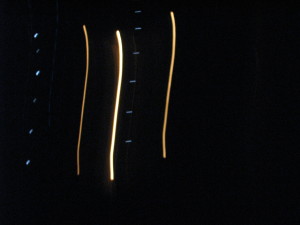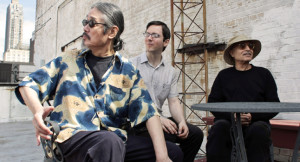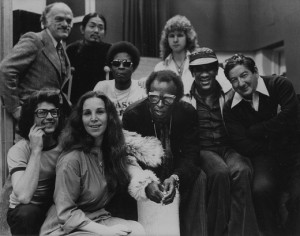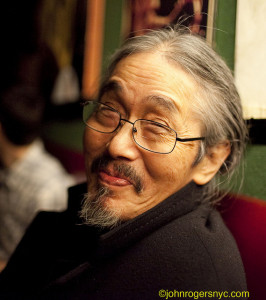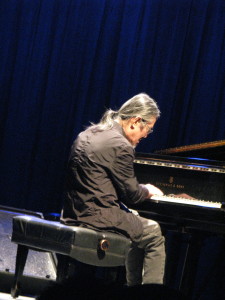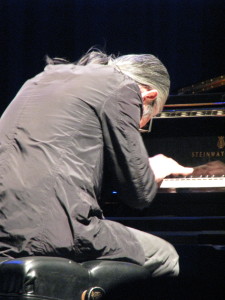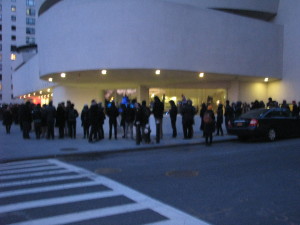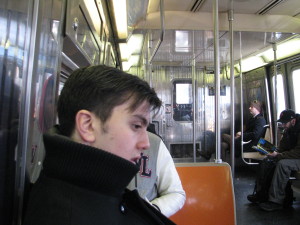BUCURESTI still on my mind … H E R E are my (written) impressions
and a few pictures …




©FoBo_HenningBolte
Archives: Juli 2015
2015 10 Juli
BUCHAREST still on my mind
Henning Bolte | Filed under: Blog | RSS 2.0 | TB | Tags: Bucharest Jazz Festival 2015 | Comments off
„The heat was hot and the ground was dry …“ (Amerika)
Erschöpft von der Hitze liess er sich auf die Matraze fallen und fischte wahllos ein Buch aus dem Stapel, das rechts neben dem Bett aufgetürmt war. Das Bücherregal hatte er leergeräumt, um es zu säubern, zu entstauben und an ihm jenen Ritus zu vollziehen, der seit ehedem das Sahnehäubchen der Veredelung von Möbelstücken war und gewisse Heilkraft besass: dem Überziehen von unbehandeltem Naturholz mit einer Leinölfirnis.
Der Duft dieses Öles glich jenem Duft der Zeit, den Philosoph Byung-Chul Han beschrieb in einem Buch, das zu dessen schönsten gehörte. Jener Geruch auch, den er wahrnahm, wenn er zu Studienzeiten die Arbeitsräume der Kunsthochschule betrat oder heute noch zuweilen beim Besuch von befreundeten Künstlern in ihren Ateliers.
Es war nicht der Akt des Malens – er selbst sah sein Scheitern als bildender Künstler auch darin begründet, dass er beim Fertigen einer Zeichnung oder eines Bildes nie zu einem befriedigenden Abschluss gekommen war, ganz anders als etwa beim Schreiben, Musizieren, Handwerken oder Wandern – sondern eben diese von Dammarharz und Leinöl getränkte Atmosphäre, die ihn selbst stets faszinierte und ihm ein Gefühl von Heimat gab.
Jetzt also plötzlich diese Temperaturen. Der Vorsatz, das Regal wieder einzuräumen, verflüchtigte sich wie eine Fata Morgana in der Wüste, verschwand vollends am Horizont. „Eigentlich sogar zu heiss, um zu lesen!“ ächzten seine Restgedanken bei vierzig Grad im Schatten. Es war dann ein Taschenbuch neueren Datums, das er aus dem Stapel fischte wie ein Mikadostäbchen.
Ein senkrecht, fast phallisch aufragender Kreuzschraubenzieher mit limettengrünem Griff („Erfrischung jetzt! Kühles Wasser mit Zitrone!“) auf schwarzem Grund zierte das Cover, kursiv darüber der Titel in den Farben hellblau, rot, gelb, orange und pink. Er erinnerte sich an dieses Gespräch mit S beim Morgenkaffee kurz vor Beginn des Seminartages und musste schmunzeln: S war als überzeugte Zeugin Jehovas zwar nicht frei von nervtötendem missionarischem Eifer gewesen, dafür aber erstaunlich sympathisch und witzig.
Hinzu kam, sie hörte Lieder von Peter Gabriel und von einer Band, die namenlose Pferde besang und sich nach einem Kontinent benannt hatte. „Haha, also nicht ich glaube, sondern ich schraube …?“, lachte sie. Ja, genau das war der Titels jenes Buches, von dem er damals schwärmte und das er jetzt in seinen Händen hielt.
Er schlug, wiederum nach dem Mikadoprinzip, wahllos eine Seite auf, begann zu lesen und war sofort drin. „Das ist es!“ dachten Rest- und Randgedanken zu dem Phänomen, dass etwas plötzlich interessant wird. Man liest, hört oder sieht etwas und weiss sofort, dass es gut ist (bei Filmen etwa reichte ihm eine kurze Anfangssequenz). Der Autor Matthew Crawford machte glaubhaft, zu wissen, wovon er schrieb: vom Zusammenhang geistiger Höhenkletterei mit der Notwendigkeit handwerklichen Verständnisses und Geschickes.
Wohlig liess er sich in die Lektüre fallen. „Ist nicht ein leinölbehandeltes, selbst gebautes Buchregal, wenn es denn erst wieder bestückt ist, das perfekte Bild für die Einheit von Bildung und Handwerk?“ Wieder so ein Randgedanke, der in der Mittagshitze schwirrte.

2015 9 Juli
Wilfried Pasch lag völlig richtig!
Michael Engelbrecht | Filed under: Blog | RSS 2.0 | TB | Comments off
Wilfried begeisterte sich damals, wie viele andere, für Shankars Langspielplatte SONG FOR EVERYONE. Die läuft jetzt gerade hier, als CD, in einem Balkonzimmer im Marais. Wunderbar, immer noch, nach all den Jahren. Manchmal scheint die Lust am Leben überschäumend und dermassen traurig zugleich, und Ray Davies hat den ultimativen Song darüber geschrieben: „Days“. Morgen die Ausstellung von Pierre Bonnard: Diena Verny hatte einen speziellen Blick auf den Maler. Und Pierre Bonnard hatte zweifelsohne einen speziellen Blick aud Diena Verny. Sie stand, lag, bewegte sich als sein Modell. Sie sollte ihn dabei vergessen. Wie geht das? Die eine enthüllt sich, der andere bannt sie, wenn er nicht gar selbst unter einem Bann steht. Er stand meist im Schatten, sie nicht immer im Licht. Das war gewollt. Dass der Blick mal sehnsüchtig war, mal diskret, mal verloren, mal verwundert, irritiert! Ein Voyeur war Bonnard, ein schwankender, suchender, melancholischer. Denn alles würde entgleiten, das war sein einzige Gewissheit. Wie nährt sich ein Maler von verstohlenen Blicken? Hier ihre Sätze für die Nachwelt: „Für ihn Modell zu stehen war eine andersartige Erfahrung als mit den übrigen Malern. Er wollte nicht, dass ich mich ruhig verhielt. Was er wünschte, war Bewegung. Er verlangte von mir, vor ihm zu `leben´, indem ich ihn vergessen sollte. Was er suchte, war das Leben und dessen Abwesenheit zugleich.“ Und die synthetische Perkussion ist einfach nur bezaubernd, auf dem „Song für jedermann“! Die Kreise schliessen sich einmal mehr, z.B. Im Hafensommer Würzburg 2015: Sly & Robbie meet Nils Petter Molvær (feat. Eivind Aarset & Vladislav Delay) – „Jamaica meets Scandinavia“.
2015 9 Juli
Jetzt im Kino: „It Follows“
Michael Engelbrecht | Filed under: Blog | RSS 2.0 | TB | Tags: Horror, It Follows | 8 Comments
Die Musik von Disasterpeace (Rich Vreeland) ist der Soundtrack, den solch ein minimalischer Horrorstreifen benötigt. Mit Echos von Cage, Carpenter und Penderecki. Ohne die laufenden Bilder macht er nur Sinn, wenn man etwas zum Film erzählt, der in und um Detroit herum gedreht wurde. Eine urbane Kulisse, die immer mehr zur Geisterstadt taugt. Alles wirkt seltsam retro in diesem Film, der sich in einem Nirgendwann zwischen den Siebzigern und der Gegenwart zu bewegen scheint. Wenn zu Anfang die blonde Jugendliche in High Heels verwirrt auf die Strasse läuft, wähnt man sich in einem Traumszenario.
Überhaupt scheinen sich die jugendlichen Protagonisten in einer Art Blase zu bewegen, zwischen der Zeit des Erwachsenseins und den Geschenken der Kindheit, die immer noch den grösseren Charme besitzen. Man liest auf E-Books (die wie digitale Poesiealben aussehen) Dostojevskis „Idiot“, man guckt alte Schwarzweissfilme mit Cops und Sternenreisenden, man ist vielleicht ein wenig gelangweilt, aber man ahnt und weiss, wie wichtig Freundschaften sind. Die Geschwister zicken nicht miteinander, man ermutigt sich, in dieser Welt, in der die Erziehungsberechtigten ein relatives Schattendasein führen. Und wenn dann das Grauen zur permanenten Bedrohung wird, ist Freundschaft allemal gefragt. Was ist man bereit zu geben, zu teilen?
Als Genrefilm bleiben verstreute Verweise auf andere Klassiker des Horrors im Vorstadtamerika nicht aus, von „Blue Velvet“ über „Carrie“ bis „Halloween“, aber nicht als ausgeklügelter Subtext für Filmjunkies – alles ist organisch verwoben, es gibt keine einzige überflüssige Szene in einem Film, der trotz einer unheimlichsten Strecken immer noch Momente unter einem dunklen Sommerhimmel findet, in der reine sanfte Melancholie herrscht, und die Gewissheit, dass die Kindheit ein für allemal vorüber ist.
Genau wie der Western, dessen Ende regelmässig verkündet wird, ist auch der Horrorfilm einfach nicht totzukriegen. Immer wieder mal kommen da wie dort kleine Meisterstücke zum Vorschein, die so „creepy“ sind, dass manche sich an die erste Gänsehaut im Kino erinnern werden. Dieser Film ist so raffiniert, dass man leicht alle Requisitenkammern vergisst, sogar die Tüte Popcorn in der Hand. It will follow you.
2015 8 Juli
Die sinkende Trefferquote des Zaubers
Michael Engelbrecht | Filed under: Blog | RSS 2.0 | TB | 8 Comments
Cadillacs, blue jeans, dixieland playing on the ferry
Cadillacs, blue jeans, drop a glass full of antique sherry
(from „The Great Deceiver“)
Ich kann es einfach nur beschreiben. Musik, die mich fasziniert, wird seltener. Wenn ich mir anschaue, was da alles so bei thequietus, pitchfork, anydecentmusic, metacritic, allaboutjazz, popmatters etc. in den Himmel gehoben wird, fühle ich mich tatsächlich an die Bar im Himmel des Talking Heads-Songs erinnert, in der nichts (besonderes) passiert. Schön, worüber man sich so alles entzücken kann. Jedem seine Welt. Es ist ja auch schon fast witzig: man kann an neuesten Soundprogrammen feilen wie man lustig ist, bald Klänge holographisch erleben, per Hand im Raum verschieben, die Rockmusik, der Jazz, die Elektronik, die Avantgarde -:)-, die Neue Klassik sowieso, der Folk, alles, alles, alles in der Postmoderne angekommen: recyceln, neu kombinieren, mutieren, recherchieren, alles ist möglich, aber der Zauber lässt nach. Lassen wir da mal den Hip-Hop weitgehend raus, der dieses Jahr schon zwei angebliche Meisterwerke für mindestens eine Ewigkeit kreiert hat (und diese Musik mag gewissen soziokulturellen Gruppen der heilige Gral sein): ich fand diese Alben völlig ermüdend, auch das mit dem „schwarzen Messias“. Die gute Nachricht ist: es findet sich immer noch genug Magie, um ein Suchender zu bleiben. Manchmal ist es ein Erinnerungszauber (wie bei Gary Peacocks jüngster CD), manchmal ein Trancezauber (wie bei Matana Roberts‘ Soloaltsaxofon-CD „Always“), manchmal der Zauber, die neuen Stories vertrauter Stimmen zu hören (Rickie Lee Jones). Die jüngste Bob Dylan hörte ich nur wegen der Stimme: manchmal ist auch Musikhören eine Art, dem Tod bei der Arbeit zu lauschen. Aber diese Schattenplatte von Dylan ist jetzt auch schon völlig uninteressant geworden, anders als „The Other Side of Bob Dylan“. Auch jede Menge abstrakter neuer Jazz, der hier zuweilen reine Euphorieattacken auslöst, lässt mich kalt. Und wie schön, wenn in diesen Räumen des Wenigergewordenen ab und zu Überraschungen warten, bei denen die Freude umso grösser ist, Erstbegegnung, Wiederbegegnung, ganz egal. Ich tauche derzeit in den Werkkatalog von King Crimson ein, wie ihn Steven Wilson in seinen 5:1-Remixen abbildet. Und das ist grandios. Und wenn ich Klassiker auflege, wie „Remain In Light“, „Another Green World“ oder „Dis“, dann ist es mir egal, ob der Zauber sensurround wirkt, von Vinyl oder ordentlich remasterter CD kommt. Das Herrliche an manchen Zeitreisen ist ja, dass man mitunter an Orten ankommt, an den man nie war, und plötzlich hält man „The Magical Worlds of The Strands“ in Händen. Ich werde jeweils nie zu denen gehören, die sagen, gut, jetzt klappen wir mal das Buch der ewig jugendlichen Klänge zu, oder das Buch des „Adult Oriented Rock“, und landen bei Beethovens späten Streichquartetten, diesem unbestrittenen Höhepunkt abendländischer Kultur, der mich nie berührt und interessiert hat. Tatsächlich verstehe ich nichts von Autos, aber von Musik doch eine ganze Menge. It’s an existential thing, not a canonical one. Was gleich auf mich wartet: „Starless and Bible Black“ (5:1/lossless), das ganze Opus.
2015 8 Juli
Poo died
Henning Bolte | Filed under: Blog | RSS 2.0 | TB | Tags: Masabumi Kikuchi | Comments off
2015 8 Juli
BROOKLYN 4: An afternoon with Poo
Henning Bolte | Filed under: Blog | RSS 2.0 | TB | Tags: Masabumi Kikuchi | 2 Comments
Heavy day-planning: due to physical and other handicaps only the meeting with Masabumi Kikuchi worked out. Masabumi Kikuchi (1939), pianist of the legendary Tethered Moon Trio with bassist Gary Peacock and drummer Paul Motian, released the trio-album Sunrise (ECM) with young bassist Thomas Morgan and the late Paul Motian last year, an album ranking high on my 2012-favorites-list (one of my RADIO-ON-DEMAND items: listen HERE). I am happy that it is becoming real to meet him. Great moment! Here’s a first rendition with impressions of that afternoon (a thorough article will appear later).
A Time Ago
It all began twenty years ago, 1993, in Gonneville, a small village in Normandy. I went there to work in seclusion to finish my Ph.D.thesis. My stay there was strongly, indelibly connected to the music I was listening to intensely: Triangle by Tethered Moon and If You Look Far Enough by Arild Andersen, Ralph Towner, Nana Vasconcelos and Audun Kleive. The opener of Triangle titled Little Abi was a revelation for me and is deeply stamped into my memory. Never before I had heard something like that. It stayed with me and every time I listen to music by Poo it is there, it is the starting point. He now told me that Abi is his daughter, born in the seventies (he recorded its first version with Elvin Jones in 1972). Now I am writing this down I suddenly realize that I first stumbled on Arild in a real funny way when arriving at the Paul Motian Tribute next evening.
Another unforgetable moment and precious memory: a nightly listening session years ago with my friend Jaap who was very close to Gil Evans (many stories …). He presented to me Gil’s recording of Kikuchi’s composition Drizzling Rain from Gil’s album Lunar Eclypse (1981).
Poo through the times
Masabumi Kikuchi aka Poo, a long time New York resident, had a close musical relationship to Gary Peacock, Elvin Jones, Gil Evans and during the last two decennia especially to Paul Motian. The last 10 years a Kikuchi-image of the highly wondrous genius existing in seclusion arose.
It is however only part of the story. There is much more than may appear at first sight! But Kikuchi never built on surface-continuity. In the sixties he worked and recorded regularly with Toshiko Akiyoshi and Charlie Mariano, Watanabe, legendary drummer Masahiko Togashi and composer Toru Takemitsu. In the seventies Kikuchi befriended Miles Davis during his post-„Agharta“ retirement period, and recorded a still-unissued session with him (1978). Davis’ group should tour but had to be disbanded due to severe health problems of some of its members. In that period Kikuchi played and recorded with Davis-sidemen like Liebman, Grossman, Foster a.o as well. End of the eighties/beginning of the nineties he also worked and recorded with Bill Laswell, Bernie Worrell and Bootsy Collins. His recorded work is a bit scattered but much of his old work is still available.
Little Abi – it is the tension Poo is able to generate, a tension that brings forth magic duration and beauty of sound. Moon, tethered moon. It is said that his playing changed profoundly during the last years in the Motian-bands. Sure, he took advantage of Motian’s no-rehearsal-principal by trusting and relying on spur-of-the moment discoveries. „Lately when I sit down at the piano I do not prepare what I will play nor do I think about how to play, and I believe I found the way of putting out something new, and I guess I could call it my own.“
Comparing Little Abi to Ballad on the recent Sunrise-album with Paul Motian and Thomas Morgan: in the later there is still more, higher tension, sharper contrast and more abrupt movement. Heavy accents, halts and quick runs. Like certain processes in nature, e.g. breaking/flowing ice. It also inherits an ongoing antithesis of momentary explosive impulses and subsequent freezing of bold and gracious movements which lends sound an object-like quality. Tethered moon: evanescence and sharp contouring to and fro. As catapulting in the art of archery. His music is radically focusing, confronting, not distracting. These qualities are without doubt related a.o. to two strong influences on him, Herb Pomeroy and Gil Evans.
Meet, talk, (tr)eat
We should meet at Neue Galerie, 1048 – 5th avenue/East 86th street, with its Viennese Café Sabarsky. I got out at Lexington Avenue and walked 86th street down to 5th avenue corner. Before entering the building on 86th street, I turned round the corner to check my bag for a few things. At the moment I turned back, I bumped into Masabumi Kikuchi who was approaching from the north on 5th avenue. His left hand was bandaged. He showed me and told that he just had fallen and been bandaged at nearby Mount Sinaï Hospital. Goodness me! Later on I asked him if it would be possible for him to perform at the Motian-tribute next evening. He looked at me with the typical provocative grin of him: „I don’t really need both hands for that!“
Contrary to my expectation it was quite noisy inside the cafe. Kikuchi seemed to be intrigued by the Viennese decor and immediately reacted on spheric things. Triggered by the harsh behavior of the personnel he repeatedly asked me: „Are they from Vienna?“ The noisiness could have caused an extra obstacle given that Poo articulates at a soft level with his voice. It had however a benevolent effect. After a while he adapted his voice to the noise-level of the room.
Connecting to him was easy and heavy at the same time. I experienced that earlier at the phone when we organized our meeting. He picks up topics and questions very quickly but he is not just responding. He actually takes his very own route, interrogating and examining the interviewer. And then there are these restarts, resettings during the conversation. Topics and questions already dealt with are brought up, repeated by him again and again. It is confusing and takes some patience to get along with and some creativity to cope with it. We had a good rapport and that helped us to discuss all relevant matters nonetheless. His answers were sharp and precise too. It became hard however to hold on working through a set of prepared questions. Beter, inescapable to enter free flow conversation also because it is a lot of fun to talk with him. He is sweet, provocating with plenty stories on necessary and productive stubbornness. He repeatedly emphasized that he did not like the all improvised Sunrise-recording made at Avatar-studio on the other side of Central Park in september 2009. Even the titles were supplied by Paul Motian, he told. But when he finally got the finished product, he really liked it. A grin again.
Kikuchi owns a wondrous kind of ignorance. It is already apparent in his notes on Sunrise. The opening: “Suddenly, Paul was gone. He left without warning.” And then he continues:”By the time I visited him in hospital (also the Mount Sinai, HB) for the second time, he was already in the palliative care unit and they wouldn’t let me see him. A week earlier, not long after Paul had admitted, Bill Frisell’s wife and daughter were there to care for him. They kindly left me alone with Paul for a while, and I’ll always be grateful for that … Paul and I talked for close to an hour, but it was pretty much business as usual because, frankly, I had no idea he had so little time left. As soon as he began to look tired I told him I’d visit again soon and went home. And that was it.” Then he continues telling about their first meeting together with Gil Evans, Juini Booth, Airto for a recording with Sting …
On the other hand he clearly acknowlegdes own physical and mental handicaps and described how he turned his loss of control into spontaneous action and creativity. An example is the crossing of his hands when playing. It is a consequence of his loss of flexibility and width of hand span. “This solution occured spontaneously at a certain moment during playing. I learned to give way to these kind of impulses from a deeper level and follow a different modus operandi.”
Company
We were already talking for nearly one and half hour when my nineteen year old son Dikran joined. Kikuchi apparently liked our company so we went on with the three of us. Unfortunately Sabarsky interfered. I had chosen Sabarsky because of their opening hours but just this afternoon they did not keep to it. We were expelled non-gently. We moved to a French restaurant on 86th street and had a delicious dinner there.
After nearly 4 hours having spent together we accompanied Poo to the subway-station at Lexington Avenue and said goodbye trusting that he safely would make his way home to downtown West Village. Next evening Masabumi Kikuchi appeared at the Paul Motian Tribute at Symphony Space contributing a solo and duo with Gary Peacock, his longest musical companionship. He knows him from the time that Peacock lived in Japan (1969-1972). Kikuchi’s contribution: short, intense and the one with the highest tension.
Kikuchi, a highly wondrous genius living in seclusion? No! Kikuchi, a queer customer on a strange trip? No! Kikuchi, an otherwordly sage? No! Rien de tout cela!
There is plenty material he recorded himself playing with extraordinary bassist Thomas Morgan and guitarist Todd Neufeld. He performed with the trio in Japan. His next public appearance in New York will be very soon: a concert with Tyshawn Sorey, another prudent, creative musician AND drummer, Todd Neufeld and … yes, Thomas Morgan. The group debuts new material from Sorey’s forthcoming Pi Recordings album:
17 april, 20:00. Greenwich House Music School, 46 Barrow Street, New York.
Coda: Tyondai Braxton at Guggenheim Museum
Our next stop at one block walking distance: Tyondai Braxton, one of the big acts of famous WARP-label, with HIVE, an electronic event in the rotunda of the Guggenheim Museum or as NYTimes-review wrote: „Fastidious Percussion With Plenty Of Electronics“. When we arrived there was a long queue around the block.
Not only a long queue but it was completely sold out. A clear signal to return to Brooklyn!
More than once Poo just before declared he wouldn’t go there because the construction of the building was badly out of balance. „Not a good place for people to stay“, he said.
photo 1, 3 by the wonderful photographer John Rogers ©, good friend of Paul Motian
photo 4, 5, 6 7 © FoBo – Henning Bolte
2015 7 Juli
A Beautiful Day Sometimes Ends With A Shooting
Michael Engelbrecht | Filed under: Blog | RSS 2.0 | TB | 11 Comments
Yesterday was great: like one of Joey’s more eventful bike rides to the outskirts of Hannover. Though I was nearly never leaving the confined space of my garden. It all started with a weird dream explaining to Ian the text types of „interim texts“. I had to speak very loud, cause my long gone father was producing noises near the ceiling. One rule: if old daddy comes along in your dreams, it’s time to think twice. Within hours the unfinished businesses of the „book“ and the „Punktfestival“ were history. I just knew it was over. As Joey told me later on: the blog is more important than the book. Right he is. The day turned into pure delight. I had to laugh out loud when some guy I will keep unnamed used the word „slots“. Never believe a guy (at least be very sceptical) who says „slots“ or „no slots“. A good man offered me his shining new blue tooth-driven Mercedes (there are nice people on this planet who drive Mercedes!) for a trip to Paris. Because my cooling system broke down. In the afternoon I was listening to Donald Fagen’s „The Nightfly“ on a surround system, and thought, well, on August 15th I will definitely turn into a nightfly doing a five-hour-radio-live show, and the only thing that will keep me from snoring into the microphone: only play what you love. So, in the last 25 minutes, before 6 a.m. Mr. Fagen’s „New Frontier“ would be a good choice as would be Rickie Lee Jones‘ version of „Show Biz Kids“. And then Art Lande and Jan Garbarek might finish the time traveling zone with their duo classic „Red Lanta“. Anyone who knows the ECM-record will probably see the cover before the eyes, like a photo beautifully gone wrong. When, one evening, I sat with Manfred Eicher and some musicians in the open-air-zone of a restaurant in Lugano, we talked about some records we will always love to return to. Discovering some rare beauty in unheared music is the same thrill as returning to sources of constant wonder. And this was the multicoloured thrill of yesterday’s trip to a clear mind. In the end this clearness and joy were a bit too much for me, and I cooled down with a good half of a bottle of ice-cold wine (rose). If paradise is half as nice. When the night came falling down, I went into my electric cinema and saw one of the darkest episodes ever of the American TV-series „Justified“ (in the middle of season 4). Near the end my „hero“, Raylan Givens, said to a guy: „Did I hear that right? You just gave me an order?“ Mistake.
2015 7 Juli
Leesound
Henning Bolte | Filed under: Blog | RSS 2.0 | TB | Tags: Lee Konitz | Comments off
Everything is important!
‚Yes‘ or ‚No‘?

